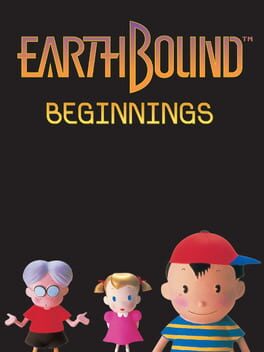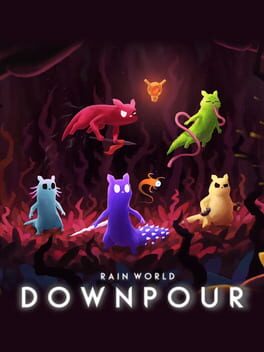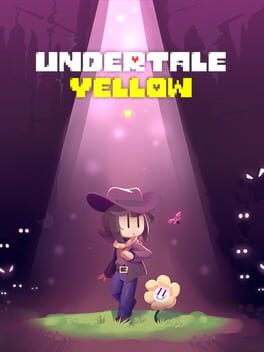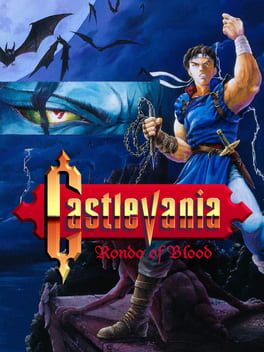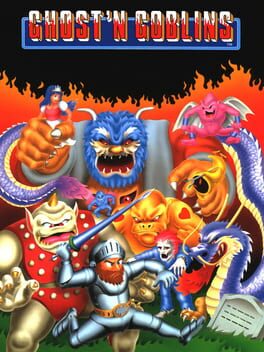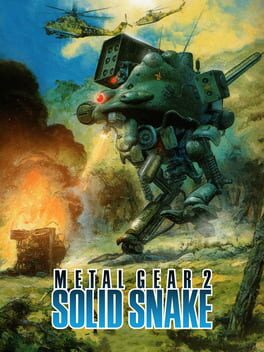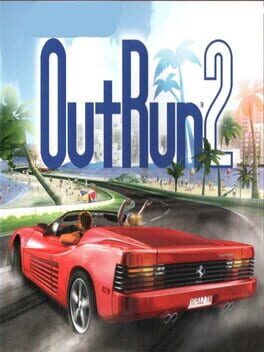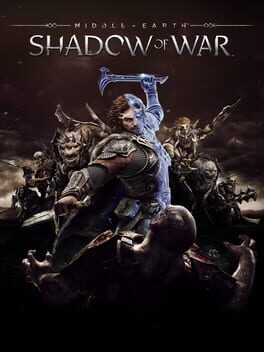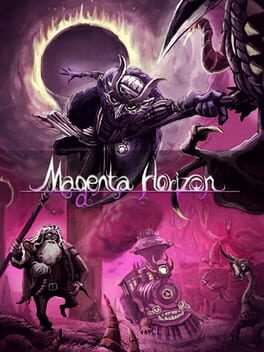baldur
breath of the wild but more. which is to say that its more good but also more bad. i'm happy nintendo felt compelled to build on botw's foundation and expand on the systems established in that game, i think both of these games are some of the most invigorating and delightful current day AAA releases, but i do hope that for the next game the team won't be afraid to apply that same "ruthless critique of everything existing" mentality that botw approached the series at large with to the structure of these newer games. let's maybe rein things in a bit - make the world smaller, ditch hyrule and ganon (because my god some parts of the overarching narrative here are a total misfire and symptomatic of a series in narrative stagnation), and maybe restrict the player's freedom a little so there's some room for progression (though non-linearity should be kept by any means necessary - i am certainly not one of the advocates for a return to a more linear "old school" 3d zelda). restricting the player's freedom a little could also go a long way towards fixing some issues with the game's difficulty - tying special effects to clothing is fine, but being able to switch them on the fly is something that not only becomes a tiring exercise for the player but also undermines the survivalist aspects. similarly, combat mechanics that are really quite good are undermined by the ability to heal in the menu, something that not only allows for sloppy play and makes the game needlessly easy but also feels like a chore to even do. there's just too many interruptions, and that's a big buzzkill in a game that is otherwise so dynamic and immediate. this is another reason why i've become intensely skeptical of fast travel - it's just too optimal to zip all over the place from the menu, which alienates you from the world you're exploring. certainly it's hard to imagine a game of this scale without fast travel, but that's just one more reason to advocate for a smaller world. there's a reason why the tutorial levels of these games feel great to play - because you're really immersed in the space, really engaging with the environment and the immaculately constructed systems, and steadily gaining new abilities that upend the nature of that engagement. people have called these tutorial levels "the games in miniature" but i'm not sure that's true - i think they're defined in opposition to the rest of the game which is much less restricted. after all, it feels pretty liberating to gain the paraglider. so in short, what i'd like to see in the next game is something that actually replicates how the great plateau or great sky island play on a large scale. i respect how committed these games have been to freedom and player empowerment, but the way to stay true to breath of the wild's maverick spirit is actually to confidently question even the core pillars of its game design - not to uncritically follow its formula.
my pie in the sky wish is that they yet again look to zelda 1 and this time try to replicate that game's sense of organic player discovery. obviously there's some of that in these games but what i'd like is less contextual story events, less handholding and signposting, more mystery, more trust in the player to be engaged and immersed in the world without a yellow brick road to follow. i think this is one of the few areas in which elden ring has these games beat and i'd like to see this series retake that particular throne. i'm not expecting it to, because this game runs counter to that direction with its main quests, but it's what would excite me the most. would also like to see stuff like shrines integrated more seamlessly into the world - the caves in this game are a good half step in that direction (venturing into the royal hidden passage was an early highlight of the game), it just needs a bit of depth and variation. hopefully the smaller world would prevent things from feeling like rote repetition, as it sometimes does in this game with the copy pasted rooms and blue frogs you find in every single one.
anyway i still love this game and link is really hot god bless
my pie in the sky wish is that they yet again look to zelda 1 and this time try to replicate that game's sense of organic player discovery. obviously there's some of that in these games but what i'd like is less contextual story events, less handholding and signposting, more mystery, more trust in the player to be engaged and immersed in the world without a yellow brick road to follow. i think this is one of the few areas in which elden ring has these games beat and i'd like to see this series retake that particular throne. i'm not expecting it to, because this game runs counter to that direction with its main quests, but it's what would excite me the most. would also like to see stuff like shrines integrated more seamlessly into the world - the caves in this game are a good half step in that direction (venturing into the royal hidden passage was an early highlight of the game), it just needs a bit of depth and variation. hopefully the smaller world would prevent things from feeling like rote repetition, as it sometimes does in this game with the copy pasted rooms and blue frogs you find in every single one.
anyway i still love this game and link is really hot god bless
2023
To say that I was skeptical about Downpour going in would be an understatement. The original Rain World is, as of the time of writing, my favorite game of all time. One of the most important things about it to me is that it feels incredibly holistically designed, with every individual component thoughtfully considered in how it relates to the larger whole. Everything in Rain World is interconnected, reflecting the Buddhist existential themes explored within it.
With that, I think you can understand the trepidation I felt when I heard about this expansion. New content of any kind was enough reason to worry about the sanctity of the original experience being trampled over – an entire expansion developed by fans, with new characters, creatures, and regions, along with ““quality of life changes”” (a subtly threatening term when it comes to something as idiosyncratically designed as Rain World)? Let’s just say that I feared the worst. The new slugcats that had been revealed didn’t exactly fill me with optimism, either. Rain World cannot claim to be a realistic game, but it is grounded - and those new slugcats did not look grounded.
Now, Downpour has been released. Were my fears unfounded after all? Well…
Something that I really respect about this expansion, and give endless kudos to the team for, is how humbly it presents itself. Make no mistake, this is an absolutely massive DLC with heaps of new content, and yet the first thing you do after downloading it is navigate a new mod manager setting where all the new stuff is listed. This manager does not distinguish between workshop mods you can download for free and this new expansion you pay actual money for – Downpour essentially declares with pride instead of shame that it is little more than an officially supported collection of fan mods. I really, really appreciate that, because as we’ll see, Downpour is extremely ambitious; a layer of separation between what is and isn’t Videocult’s original work was an absolute necessity in my opinion, and I respect the hell out of the team for refusing to muddy the waters in this regard. More pragmatically, this is also a boon to Downpour’s reception – if you don’t like a creative decision, you can simply remind yourself that this is just one (very talented) team’s take on the original work. Nothing is sullied, but a lot can be gained.
Moving on now to discussing what has actually been added in this expansion: there’s no way around it, Downpour is a very different experience to classic Rain World in almost every regard. It turns the dial considerably towards “gaminess”, and makes for something that is a lot messier design-wise, which I just about expected. What I didn’t really expect was how high the narrative ambitions here were. This is something that would’ve troubled me immensely had I heard about it before release. Surprisingly, though, this came to be probably the part of the experience that I enjoyed the most; thanks to, again, that level of separation between the base game and Downpour, and also because the new narrative stuff is honestly nothing to scoff at quality-wise and came a lot closer to replicating the thematic and atmospheric flavor of the original than I was expecting. Mind you, that does not mean there isn’t any tension between what the original Rain World was going for and what Downpour is. The outlandish abilities of the new slugcats definitely do undermine the grounded ethos a bit, for one (though I appreciate that they’re all given reasonable explanations in-universe). More importantly, though, the narrative priorities have completely shifted.
In the original game, the story of the setting (the "lore") was told in the background and was totally subservient to the player's own personal journey of surviving an enigmatic world. You'd stumble upon Moon, or Five Pebbles, and you'd react with awe and wonder, but lacking context and familiarity, file those experiences away as simply another discovery in a pile of them. In Downpour, what was previously the background narrative takes center stage. You always know where to go – to Pebbles and Moon, probably in that order. That doesn't mean that there are no surprises along the way, but on a whole the design philosophy of Downpour is totally juxtaposed with the original’s. In simpler terms: the original was centered firmly around the journey, whereas Downpour is all about the destination.
The slugcats aren't the protagonists any more - they're side characters in a narrative that centers on the iterators, with our dual protagonists being the two we can visit in-game, Five Pebbles and Looks to the Moon. Now, to be completely accurate, this shift was technically already present in the original game. Fundamentally, every new slugcat campaign in Downpour is building on the groundwork laid by the Hunter’s campaign, which served as the original game’s hard mode. What makes Downpour feel like such a change, however, is the sheer totality of what is added. Hunter felt like a side mode, a way to capitalize on the game’s many brilliant mechanics in a more gamey way while still grounding it narratively. But when you add twice the amount of campaigns the original game had (and counting the Monk separately is honestly generous), it's hard not to look at these "side modes" as having become the main dish. The campaigns are thus reframed as small vignettes that serve as the building blocks of a larger narrative that is far more epic in scale – a real opus, one that presumably spans centuries and centuries. And quality-wise, I found myself rather enjoying the story being told. Though I am a little ambivalent on some particularities, on a whole the arcs of Pebbles and Moon are compelling to follow, and full of evocative moments.
The Saint’s campaign was a particular highlight; seeing the world in an even more ruinous state, collapsing in on itself, with cycles fading out as the periodic torrential rain gives way to never-ending snowstorms, was incredibly affecting and felt like a very fitting note to leave this setting on; though I am a tad conflicted on how bombastically that campaign ends – I almost feel like it totally undermines the quiet poignancy of what came before, but I’d also be lying if I said that I didn’t find it to be a fascinating development that, in many ways, pulls a lot of the threads of the narrative together pretty well.
The rest of the campaigns range narratively from decent to great. Gourmand I don’t have much to say about, but I quite like the addition of the Outer Expanse – venturing outside the grounds of the iterators and back on to your (aesthetically inspired) native turf was very exciting (if a tad fanservice-y). Spearmaster allows for the experience of exploring Moon’s facility and seeing her fully operating, which is nice, but I’m not that fond of how the bulk of the narrative is told through chatlogs. Artificer’s story was like a self-contained filler episode in the context of the larger narrative, but it really won me over as it went on and somehow managed to not make me too troubled over the addition of a boss fight to Rain World of all games – it felt grounded in the narrative and avoided the most egregious pitfalls like Dark Souls style titles and healthbars. And Rivulet operates beautifully as a brief moment of optimism, with Pebbles’ redemption and the restoration of Moon preceding the melancholy of the Saint’s conclusive campaign.
With these narrative additions, a question has arisen in the community on whether Downpour is or isn’t officially canon, and ultimately, I think that question is missing the forest for the trees. It feels to me like Videocult, in officially sanctioning this fan effort, is going beyond basic notions of ‘canonicity’, essentially renouncing total ownership of the setting they’ve created and handing it over to their audience. This is further supported by Downpour separating itself firmly from the original work, and not distinguishing itself from other fan mods anyone can make. The question of canonicity then becomes functionally meaningless and a hindrance to productive discourse. It’s a different work, made by different people, with different priorities. It comments on the original ‘text’ (if you will) extensively, but is ultimately firmly separate. The only question that really matters to me is whether Downpour is engaging, interesting and worth experiencing. My personal answer to that question is that it is.
With that, I think you can understand the trepidation I felt when I heard about this expansion. New content of any kind was enough reason to worry about the sanctity of the original experience being trampled over – an entire expansion developed by fans, with new characters, creatures, and regions, along with ““quality of life changes”” (a subtly threatening term when it comes to something as idiosyncratically designed as Rain World)? Let’s just say that I feared the worst. The new slugcats that had been revealed didn’t exactly fill me with optimism, either. Rain World cannot claim to be a realistic game, but it is grounded - and those new slugcats did not look grounded.
Now, Downpour has been released. Were my fears unfounded after all? Well…
Something that I really respect about this expansion, and give endless kudos to the team for, is how humbly it presents itself. Make no mistake, this is an absolutely massive DLC with heaps of new content, and yet the first thing you do after downloading it is navigate a new mod manager setting where all the new stuff is listed. This manager does not distinguish between workshop mods you can download for free and this new expansion you pay actual money for – Downpour essentially declares with pride instead of shame that it is little more than an officially supported collection of fan mods. I really, really appreciate that, because as we’ll see, Downpour is extremely ambitious; a layer of separation between what is and isn’t Videocult’s original work was an absolute necessity in my opinion, and I respect the hell out of the team for refusing to muddy the waters in this regard. More pragmatically, this is also a boon to Downpour’s reception – if you don’t like a creative decision, you can simply remind yourself that this is just one (very talented) team’s take on the original work. Nothing is sullied, but a lot can be gained.
Moving on now to discussing what has actually been added in this expansion: there’s no way around it, Downpour is a very different experience to classic Rain World in almost every regard. It turns the dial considerably towards “gaminess”, and makes for something that is a lot messier design-wise, which I just about expected. What I didn’t really expect was how high the narrative ambitions here were. This is something that would’ve troubled me immensely had I heard about it before release. Surprisingly, though, this came to be probably the part of the experience that I enjoyed the most; thanks to, again, that level of separation between the base game and Downpour, and also because the new narrative stuff is honestly nothing to scoff at quality-wise and came a lot closer to replicating the thematic and atmospheric flavor of the original than I was expecting. Mind you, that does not mean there isn’t any tension between what the original Rain World was going for and what Downpour is. The outlandish abilities of the new slugcats definitely do undermine the grounded ethos a bit, for one (though I appreciate that they’re all given reasonable explanations in-universe). More importantly, though, the narrative priorities have completely shifted.
In the original game, the story of the setting (the "lore") was told in the background and was totally subservient to the player's own personal journey of surviving an enigmatic world. You'd stumble upon Moon, or Five Pebbles, and you'd react with awe and wonder, but lacking context and familiarity, file those experiences away as simply another discovery in a pile of them. In Downpour, what was previously the background narrative takes center stage. You always know where to go – to Pebbles and Moon, probably in that order. That doesn't mean that there are no surprises along the way, but on a whole the design philosophy of Downpour is totally juxtaposed with the original’s. In simpler terms: the original was centered firmly around the journey, whereas Downpour is all about the destination.
The slugcats aren't the protagonists any more - they're side characters in a narrative that centers on the iterators, with our dual protagonists being the two we can visit in-game, Five Pebbles and Looks to the Moon. Now, to be completely accurate, this shift was technically already present in the original game. Fundamentally, every new slugcat campaign in Downpour is building on the groundwork laid by the Hunter’s campaign, which served as the original game’s hard mode. What makes Downpour feel like such a change, however, is the sheer totality of what is added. Hunter felt like a side mode, a way to capitalize on the game’s many brilliant mechanics in a more gamey way while still grounding it narratively. But when you add twice the amount of campaigns the original game had (and counting the Monk separately is honestly generous), it's hard not to look at these "side modes" as having become the main dish. The campaigns are thus reframed as small vignettes that serve as the building blocks of a larger narrative that is far more epic in scale – a real opus, one that presumably spans centuries and centuries. And quality-wise, I found myself rather enjoying the story being told. Though I am a little ambivalent on some particularities, on a whole the arcs of Pebbles and Moon are compelling to follow, and full of evocative moments.
The Saint’s campaign was a particular highlight; seeing the world in an even more ruinous state, collapsing in on itself, with cycles fading out as the periodic torrential rain gives way to never-ending snowstorms, was incredibly affecting and felt like a very fitting note to leave this setting on; though I am a tad conflicted on how bombastically that campaign ends – I almost feel like it totally undermines the quiet poignancy of what came before, but I’d also be lying if I said that I didn’t find it to be a fascinating development that, in many ways, pulls a lot of the threads of the narrative together pretty well.
The rest of the campaigns range narratively from decent to great. Gourmand I don’t have much to say about, but I quite like the addition of the Outer Expanse – venturing outside the grounds of the iterators and back on to your (aesthetically inspired) native turf was very exciting (if a tad fanservice-y). Spearmaster allows for the experience of exploring Moon’s facility and seeing her fully operating, which is nice, but I’m not that fond of how the bulk of the narrative is told through chatlogs. Artificer’s story was like a self-contained filler episode in the context of the larger narrative, but it really won me over as it went on and somehow managed to not make me too troubled over the addition of a boss fight to Rain World of all games – it felt grounded in the narrative and avoided the most egregious pitfalls like Dark Souls style titles and healthbars. And Rivulet operates beautifully as a brief moment of optimism, with Pebbles’ redemption and the restoration of Moon preceding the melancholy of the Saint’s conclusive campaign.
With these narrative additions, a question has arisen in the community on whether Downpour is or isn’t officially canon, and ultimately, I think that question is missing the forest for the trees. It feels to me like Videocult, in officially sanctioning this fan effort, is going beyond basic notions of ‘canonicity’, essentially renouncing total ownership of the setting they’ve created and handing it over to their audience. This is further supported by Downpour separating itself firmly from the original work, and not distinguishing itself from other fan mods anyone can make. The question of canonicity then becomes functionally meaningless and a hindrance to productive discourse. It’s a different work, made by different people, with different priorities. It comments on the original ‘text’ (if you will) extensively, but is ultimately firmly separate. The only question that really matters to me is whether Downpour is engaging, interesting and worth experiencing. My personal answer to that question is that it is.
2019
2017
it is quite a rare thing in this industry nowadays for a game to be genuinely innovative, something that cannot be neatly placed in any one category or easily compared to other works. you could say that rain world takes cues from survival games and metroidvanias, but the crucial bit is that it doesn't let itself get constricted by any genre conventions. it borrows what works and leaves behind what doesn't. how easy would it have been to emphasize the combat a bit more, expand the offensive capabilities, add some bosses here and there? how easy would it have been to make the levels a little bit more neatly structured and paced, to gate exploration and progression behind a lock and key structure? how easy would it have been to make the enemies a tad more predictable, more exploitable, more "fair"? in all likelihood these were enticing temptations; they're tried and true methods of game design that would've served to make the game more marketable, more familiar, more accessible - and worse. instead, rain world has the courage to coalesce into something original. something new. something that's not afraid to question even the most entrenched pieces of game design wisdom, like the notion that games should always strive to be fair, or even fun. it's the sort of game that this industry desperately needs more of. in a just world, this will be looked at in about a decade or so as an influential classic that spawned many imitators and successors. there's no guarantee that'll happen though, because, as rain world itself takes care to remind you, the world doesn't operate on just principles. sometimes, all one can do is hope for the best.
1986
insane how right they got this on the first try. somehow everyone (including nintendo) took the wrong lessons from this game, sanded down all the most interesting edges in a misguided attempt to streamline. not incidentally, the successors (direct or spiritual) that didn't are like unilaterally some of the best games ever. sometimes it feels like the only games im actually interested in are just variations on zelda 1.
2023
competently made, but never manages more than to replicate some of the surface level charm of undertale. narratively it's a fairly ill-considered sequel, sort of at odds with the original's specific flavor of metafictional logic and fails to contribute anything beyond extraneous detail. the concept of flowey controlling your saves is initially intriguing, but the execution is confused and half-baked. more than anything it really put into perspective for me what a creative and interesting sequel deltarune is.
the game is still worth checking out if you liked undertale's bullet hell combat, though. the genocide run has some fun and very tough bosses - i made it to the last one but got my ass kicked and didn't really care enough to see it through to the end.
the game is still worth checking out if you liked undertale's bullet hell combat, though. the genocide run has some fun and very tough bosses - i made it to the last one but got my ass kicked and didn't really care enough to see it through to the end.
This review contains spoilers
i have arrived, at last, at the end of metal gear – and what a strange conclusion it is. a genuinely challenging game, and not in the sense that the gameplay is difficult. who could’ve predicted that this series would go out on such a hollow, lonely, and above all dissonant note?
some wonderful thematic analyses of this game have already been written on this website, and i by and large concur with the game’s defenders – the “phantom pain” is intentional, as plainly evidenced by the game’s title. i love how hollow, confusing, depressingly repetitive and alienating the game is and how those qualities tie into the game’s deliberate abandonment of a traditional “villain arc” for snake, as well as the metatextual sense that the series is running on fumes, well past even the point of self-devouring (mgs4). but the word on this part of mgsv’s storytelling has already been written by people more capable than me (the best piece undoubtedly being caebl201’s review), so i’m not very interested in retreading that ground. likewise, it feels like there are very few original observations left to make about mgsv’s (stellar, series peak) broader mechanics. so instead, i'll settle for making some scattered observations that hopefully bring something a little bit new to the conversation.
- as previously stated, the dominant goal of mgsv seems to be to subvert and alienate by way of anti-climax and liberal blurring of truth and fiction. that said, this doesn’t account for everything that mgsv attempts to do. one of the larger themes of the game, one that seems somewhat disconnected from the above-mentioned aspirations, is the theme of language, which mostly finds its expression in the concept of the infamous “vocal cord parasites”, supposedly the catalysts of our species’ development of language, capable of granting supernatural abilities and being weaponized as language-targetting ethnic cleansers. to put it simply, i find this theme quite underdeveloped (if conceptually fascinating) and struggle to see how it ties into the game’s larger ethos. the most i can muster in terms of a connection is some notion of language’s causal relationship to truth and its subsequent unreliability (the game, after all, quotes nietzsche in the final mission), but this is tenuous at best. the parasites are mostly connected with the characters of skullface and quiet, both of which are extremely and fundamentally ridiculous and whose value to me lies mostly in their playing into the off-putting, anti-climactic feel of the game. skullface’s car monologue and the subsequent sins of the father needle drop is, as noted in caebl201's previously linked review, absolutely hysterical, and quiet’s parasite infection feels like a blatant, contemptibly cynical excuse to make the hot woman side kick scantily clad and unable to express herself. i think it’s a stretch, however, to say that kojima included the theme of language solely as a practical joke when it’s so frequently elaborated on and emphasized, so what we’re left with a major part of the game’s narrative that feels pretty undercooked and silly (the alternative is that i’m stupid and not grasping the true depth and utility of this theme, which is entirely plausible).
- something i really came to like in this game was the absence of traditional boss fights. they're here, but they're treated instead like any other obstacle you're going up against and the battle is crafted around what's fitting for the type of enemy you're fighting and not from the ad hoc perspective of what would create the most intense, empowering gameplay experience. the result is a rogue's gallery that will see you engage in a thrilling sniper-duel against a superpowered assassin, and also put you up against a scary, borderline impervious fire man, where the only recourse seems to be to send an entire water tower crashing onto him before booking it. yeah, you could be honorable and employ cqc against the dipshit kid who wants to fight you... or you could decimate him with stun rounds in no time. the approach is not only refreshing but it allows for both player expression and further identification with venom as an avatar.
- it’s a shame that ground zeroes was sold as a seperate product instead of being more directly integrated into the phantom pain, because it serves a similar role of misdirection that the tanker chapter in mgs2 does. it promises a shocking downward spiral into horror and madness, a grim, self-serious study of big boss’s turn towards villainy, his “one bad day”. and then the actual game consists of a confused, dead-eyed, deferential and borderline mute snake abducting soldiers, banally managing war crime spreadsheets, absent-mindedly taking job offers from anyone willing to pay, fighting battles to build up his army to fight more battles in a cycle that never actually ends, not after the credits, or the last mission on the list, or the “true ending” where you learn that you’re not actually big boss at all.
- the real big boss, as it turns out, had his villain arc off-screen. or did he? when you listen to the truth tapes, and hear him rationalize and go along with not only mentally decimating and enslaving one of his closest comrades, but also using an entire hospital staff as his personal meat shield, not long after waking up from his coma, you realize that his “one bad day” never came – naked snake became the sort of person comfortable with throwing a bunch of people (including personal friends that trust and rely on him) to the meat grinder gradually, over a prolonged period of time, through events you tagged along with, and it all happened before this game even begins.
- i think sutherland deserves more credit than he gets for his performance in this game - his big boss is as gruff as he is charming, but venom is perpetually half-bored, confused, aimless, glum, and speaks with a sort of dazed, lethargic cadence, as if sleepwalking through life. this soulless performance totally distinguishes the two characters, despite them sounding and looking identical, which i think is a pretty damn impressive feat. that said, the few moments of genuine emotion that venom gets, sutherland totally sells – more, i suspect, than hayter ever could (no disrespect to him, though, i think he was great in mgs4)
- in a game where so much of the storytelling feels like an elaborate joke at the player’s expense, what maybe surprised me most is that it contained what i consider to be kojima’s most successful dramatic payoff, something that affected me far more emotionally than mgs3’s ending. and what’s more, it’s through probably kojima’s most ridiculous, tasteless character yet: quiet. but the scene where she guides pequod through the sandstorm is elegant in a way that kojima’s attempts at drama very rarely are – it’s not a monologue, it’s not a lengthy exposition dump, it’s not histrionic, affected melodrama; it’s just an earnest, somber expression of love and sacrifice through action. that it managed to make me forget what is probably the worst mission in the game preceding it is a testament to its genuine quality.
- kojima is a man, above all, of Big Concepts, and i think his decision to cap off the series by way of ouroboros, with snake eating his own tail (or phantom) – is one for the books. metal gear will never be game over. i'm stiiiiiiilll in a dreeeeeeaaam....
some wonderful thematic analyses of this game have already been written on this website, and i by and large concur with the game’s defenders – the “phantom pain” is intentional, as plainly evidenced by the game’s title. i love how hollow, confusing, depressingly repetitive and alienating the game is and how those qualities tie into the game’s deliberate abandonment of a traditional “villain arc” for snake, as well as the metatextual sense that the series is running on fumes, well past even the point of self-devouring (mgs4). but the word on this part of mgsv’s storytelling has already been written by people more capable than me (the best piece undoubtedly being caebl201’s review), so i’m not very interested in retreading that ground. likewise, it feels like there are very few original observations left to make about mgsv’s (stellar, series peak) broader mechanics. so instead, i'll settle for making some scattered observations that hopefully bring something a little bit new to the conversation.
- as previously stated, the dominant goal of mgsv seems to be to subvert and alienate by way of anti-climax and liberal blurring of truth and fiction. that said, this doesn’t account for everything that mgsv attempts to do. one of the larger themes of the game, one that seems somewhat disconnected from the above-mentioned aspirations, is the theme of language, which mostly finds its expression in the concept of the infamous “vocal cord parasites”, supposedly the catalysts of our species’ development of language, capable of granting supernatural abilities and being weaponized as language-targetting ethnic cleansers. to put it simply, i find this theme quite underdeveloped (if conceptually fascinating) and struggle to see how it ties into the game’s larger ethos. the most i can muster in terms of a connection is some notion of language’s causal relationship to truth and its subsequent unreliability (the game, after all, quotes nietzsche in the final mission), but this is tenuous at best. the parasites are mostly connected with the characters of skullface and quiet, both of which are extremely and fundamentally ridiculous and whose value to me lies mostly in their playing into the off-putting, anti-climactic feel of the game. skullface’s car monologue and the subsequent sins of the father needle drop is, as noted in caebl201's previously linked review, absolutely hysterical, and quiet’s parasite infection feels like a blatant, contemptibly cynical excuse to make the hot woman side kick scantily clad and unable to express herself. i think it’s a stretch, however, to say that kojima included the theme of language solely as a practical joke when it’s so frequently elaborated on and emphasized, so what we’re left with a major part of the game’s narrative that feels pretty undercooked and silly (the alternative is that i’m stupid and not grasping the true depth and utility of this theme, which is entirely plausible).
- something i really came to like in this game was the absence of traditional boss fights. they're here, but they're treated instead like any other obstacle you're going up against and the battle is crafted around what's fitting for the type of enemy you're fighting and not from the ad hoc perspective of what would create the most intense, empowering gameplay experience. the result is a rogue's gallery that will see you engage in a thrilling sniper-duel against a superpowered assassin, and also put you up against a scary, borderline impervious fire man, where the only recourse seems to be to send an entire water tower crashing onto him before booking it. yeah, you could be honorable and employ cqc against the dipshit kid who wants to fight you... or you could decimate him with stun rounds in no time. the approach is not only refreshing but it allows for both player expression and further identification with venom as an avatar.
- it’s a shame that ground zeroes was sold as a seperate product instead of being more directly integrated into the phantom pain, because it serves a similar role of misdirection that the tanker chapter in mgs2 does. it promises a shocking downward spiral into horror and madness, a grim, self-serious study of big boss’s turn towards villainy, his “one bad day”. and then the actual game consists of a confused, dead-eyed, deferential and borderline mute snake abducting soldiers, banally managing war crime spreadsheets, absent-mindedly taking job offers from anyone willing to pay, fighting battles to build up his army to fight more battles in a cycle that never actually ends, not after the credits, or the last mission on the list, or the “true ending” where you learn that you’re not actually big boss at all.
- the real big boss, as it turns out, had his villain arc off-screen. or did he? when you listen to the truth tapes, and hear him rationalize and go along with not only mentally decimating and enslaving one of his closest comrades, but also using an entire hospital staff as his personal meat shield, not long after waking up from his coma, you realize that his “one bad day” never came – naked snake became the sort of person comfortable with throwing a bunch of people (including personal friends that trust and rely on him) to the meat grinder gradually, over a prolonged period of time, through events you tagged along with, and it all happened before this game even begins.
- i think sutherland deserves more credit than he gets for his performance in this game - his big boss is as gruff as he is charming, but venom is perpetually half-bored, confused, aimless, glum, and speaks with a sort of dazed, lethargic cadence, as if sleepwalking through life. this soulless performance totally distinguishes the two characters, despite them sounding and looking identical, which i think is a pretty damn impressive feat. that said, the few moments of genuine emotion that venom gets, sutherland totally sells – more, i suspect, than hayter ever could (no disrespect to him, though, i think he was great in mgs4)
- in a game where so much of the storytelling feels like an elaborate joke at the player’s expense, what maybe surprised me most is that it contained what i consider to be kojima’s most successful dramatic payoff, something that affected me far more emotionally than mgs3’s ending. and what’s more, it’s through probably kojima’s most ridiculous, tasteless character yet: quiet. but the scene where she guides pequod through the sandstorm is elegant in a way that kojima’s attempts at drama very rarely are – it’s not a monologue, it’s not a lengthy exposition dump, it’s not histrionic, affected melodrama; it’s just an earnest, somber expression of love and sacrifice through action. that it managed to make me forget what is probably the worst mission in the game preceding it is a testament to its genuine quality.
- kojima is a man, above all, of Big Concepts, and i think his decision to cap off the series by way of ouroboros, with snake eating his own tail (or phantom) – is one for the books. metal gear will never be game over. i'm stiiiiiiilll in a dreeeeeeaaam....
2021
worth playing, but only to gain true appreciation for how good games can be when they're not shameless garbage. there's something very life-affirming in sitting down and experiencing something that values your time and attention this little and realizing, wow, this really isn't actually what most games are like; most developers at least have a modicum of respect for their audience and a genuine desire to engage players and provide them with something of actual substance, regardless of how successfully they ultimately manage to pull that off. it takes something this nakedly exploitative, devoid of effort and borderline dystopian to really jolt your brain into realizing how good you normally have it. thank you, video games, for usually not being this shit.
1985
damn, i was wrong about this one. actually way more manageable than i remembered it being. only dips into full-on unfairness a couple of times and even then it's stuff you can completely account for and strategize around. still quite a bit more haphazardly designed than the rest of the series (and that shield requirement at the end remains total bullshit), but the bone crushing difficulty has the effect of making you feel like a fucking deity when you overcome it, in a way that no other game truly managed to harness until resurrection last year. mostly i am just struck by how well this game plays and how much it does right on its first attempt. this game came out before super mario bros! how crazy is that?
on the level of presentation, this is an enormous improvement on the first game - the visuals are incredibly stylish and charming and there are numerous opulent flourishes that make the experience all the more endearing (like rondo of blood, this game has a lovely opening credits sequence that is pure pulp Vibes). in general the narrative is a lot more ambitious and memorable this time around.
gameplay is also improved, with stealth combat receiving the biggest overhaul through the addition of the radar which completely transforms enemy interaction. no longer is combat a series of room-to-room engagements but rather a broad, level-spanning obstacle where enemy movement has to be carefully observed and traversal throughout the map planned in accordance with it, which leads to deeper, more satisfying and perhaps most importantly, more convincingly stealthy gameplay. being detected is also no longer either a source of minor inconvenience or an instant game over; rather, being detected is now always a big hindrance but it is also always a recoverable situation thanks to numerous hiding spots throughout each level. granted, i think detection is often a little overzealous and hard to judge - but overall it's a big step-up from the previous system.
these micro level improvements add a lot to the experience, but take a more cohesive look and you'll start to notice some big macro level flaws as well. this game shares a near identical structure to the first game and thus carries over many of its flaws. progression is still too linear and contextual, there's still a relentless level of boring backtracking that serves as little more than busywork and padding, and direct combat still feels too clunky for how often you're thrown into situations where you fight waves of enemies (the bosses are mostly not too bad though).
the much more elaborate narrative is also a double-edged sword; kojima certainly has many intriguing ideas that make their way into the writing (it can only be described as special when a game starts dropping NATO war crime lore on you like 30m in) but the execution frequently leaves something to be desired. characters will get big, dramatic moments that feel so unearned that it's impossible to take seriously, and some of the dialogue is frankly terrible, especially during the sappier, melodramatic moments. i get that kojima is limited, both by the hardware but also by the writing being in service to a silly little military/espionage pastiche game, but maybe that's precisely the argument for a more minimalist approach.
gameplay is also improved, with stealth combat receiving the biggest overhaul through the addition of the radar which completely transforms enemy interaction. no longer is combat a series of room-to-room engagements but rather a broad, level-spanning obstacle where enemy movement has to be carefully observed and traversal throughout the map planned in accordance with it, which leads to deeper, more satisfying and perhaps most importantly, more convincingly stealthy gameplay. being detected is also no longer either a source of minor inconvenience or an instant game over; rather, being detected is now always a big hindrance but it is also always a recoverable situation thanks to numerous hiding spots throughout each level. granted, i think detection is often a little overzealous and hard to judge - but overall it's a big step-up from the previous system.
these micro level improvements add a lot to the experience, but take a more cohesive look and you'll start to notice some big macro level flaws as well. this game shares a near identical structure to the first game and thus carries over many of its flaws. progression is still too linear and contextual, there's still a relentless level of boring backtracking that serves as little more than busywork and padding, and direct combat still feels too clunky for how often you're thrown into situations where you fight waves of enemies (the bosses are mostly not too bad though).
the much more elaborate narrative is also a double-edged sword; kojima certainly has many intriguing ideas that make their way into the writing (it can only be described as special when a game starts dropping NATO war crime lore on you like 30m in) but the execution frequently leaves something to be desired. characters will get big, dramatic moments that feel so unearned that it's impossible to take seriously, and some of the dialogue is frankly terrible, especially during the sappier, melodramatic moments. i get that kojima is limited, both by the hardware but also by the writing being in service to a silly little military/espionage pastiche game, but maybe that's precisely the argument for a more minimalist approach.
2003
modding eurobeat into this game is probably one of the better ideas i've had in my life
2021
had a blast with this. what it perhaps lacks in presentational polish, it more than makes up for with rough-hewn charm and what i think might just be the deepest, most satisfying combat i've ever encountered in a 2d platformer. sincerely implore people to try this one out, the demo is free so there's no excuse to sleep on it. really looking forward to the full release!
